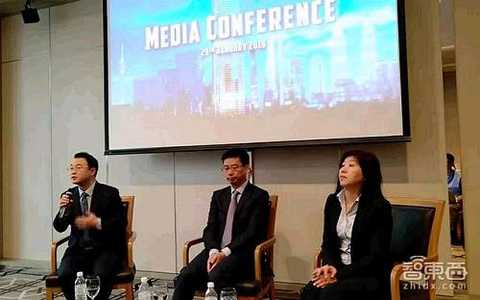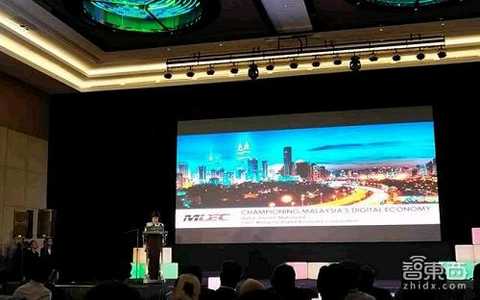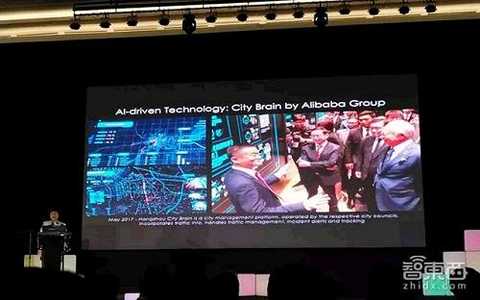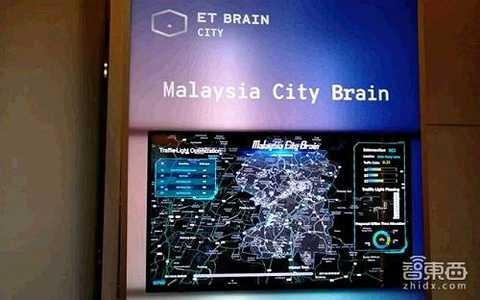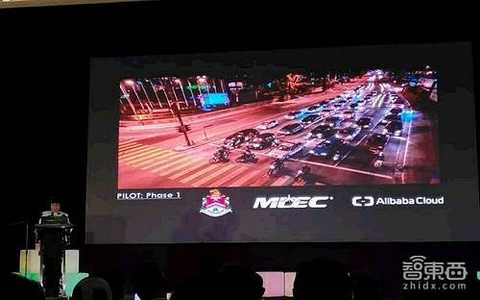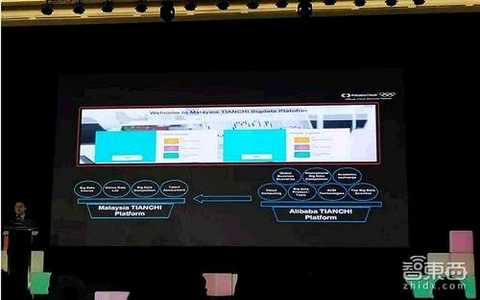Aspect: In five years to build internationalization, Alibaba Cloud will make international business revenues account for 40% to 50% of total revenue.
|
|
Smart things on January 29th in Malaysia, today Alibaba and the Malaysian Digital Economy Development Agency (MDEC) and Kuala Lumpur City Hall (DBKL) reached an international cooperation, Alibaba ET city brain and Malaysia localization to jointly build Malaysia Urban brain.
In the first phase, the city's brain will be applied to 281 road junctions in Kuala Lumpur, Malaysia, through cloud computing, big data and AI technology, dynamic adjustment of traffic lights, traffic accident detection, emergency vehicle pre-planning, etc., to alleviate congestion in Kuala Lumpur. situation.
Alibaba senior vice president and president of Alibaba Cloud Hu Xiaoming said that ET brain has been applied to seven cities in Hangzhou, Suzhou, Zhangzhou and Tianjin. This is the first time that an overseas country has been established, which is a milestone in the development of Alibaba Cloud. It is also an important step for Malaysia to move towards digitalization.
|
After the meeting, MDEC Chief Operating Officer Datuk Huang Bingbing, Hu Xiaoming, Alibaba Cloud Vice President and Chief Engineer of Machine Intelligence Dr. Wan Wanli and others accepted interviews with media such as Zhishen and others, and discussed the cooperation, internationalization and localization of Alibaba Cloud and Malaysia. Communicate on issues such as landing. Hu Xiaoming said that the current main income of Alibaba Cloud is still in China. It is hoped that through five years, the international business revenue will account for 40% to 50% of Alibaba Cloud's total revenue.
Malaysia embraces digital transformation
At the press conference, Malaysian MDEC CEO Datuk Yasmin Mamu first affirmed the recognition of AI and the determination to embrace AI. She said that in the past 20 years, we are in a world of high-speed connections. In the Davos Economic Forum just past last week, Google CEO Pachai also expressed that AI is the greatest invention of mankind. Malaysia is in a good position to use AI to achieve its own development through cooperation with companies such as Alibaba.
|
She went on to talk about the fact that in May last year, when Malaysian Prime Minister Najib visited Ali's headquarters, he visited the city brain of Hangzhou. He took a picture of the city's brain, suggesting the introduction of China's cloud computing AI technology and promoting Mara. The development of the brains of the city of West Asia.
|
MDEC's chief operating officer also said in the interview that the cooperation with Ali started from last year's eWTP (Digital Free Trade Zone). In March last year, Ali's first eWTP overseas "pilot zone" landed in Malaysia to build logistics, payment, The digital hub for customs clearance and data integration provides a window for Malaysian SMEs to reach the world and help Malaysia's digital transformation.
She went on to say that the Malaysian city brain first landed in the capital, Kuala Lumpur, and then pushed to other regions to help SMEs and Malaysian government agencies develop their businesses through the Alibaba Cloud platform.
Milestone of Alibaba Cloud Internationalization
Hu Xiaoming first expressed his inner joy after he took office. He called this the seventh time he went to Kuala Lumpur. The Malaysian city brain is the first landing project of Alibaba Cloud Overseas. It is a milestone for Alibaba Cloud Internationalization and also a digitalization in Malaysia. An important step in the transition.
He introduced the brain of Hangzhou city as an example. Through the operation of the brain of Hangzhou city, traffic can be adjusted according to traffic lights, and the speed of vehicle travel can be increased by 15%, which will improve the congestion situation in Hangzhou from the fourth place in the country to ten. outside. Kuala Lumpur also needs such a brain to improve the intelligent management of Kuala Lumpur by exporting Alibaba Cloud technology.
|
In the first phase of cooperation, the Malaysian city brain focuses on three main parts:
1. 281 road junctions in Kuala Lumpur, Malaysia will be connected to the city's brain. Through AI, cloud computing, and big data technology, the traffic lights will be dynamically adjusted and traffic accidents detected to speed up vehicle traffic.
2. Open a life channel for “emergency green light†for emergency vehicles;
3. Prioritize traffic accidents through road cameras, which will not only provide reference for traffic light mediation, but also provide more comprehensive guidance for traffic police departments.
|
é—µ Wanli explained that, for example, there are cameras on the streets of Hangzhou, which can obtain data of many vehicles. When the ambulance receives a call for help, through the real-time analysis of the city road data by the city brain, it can make a judgment in advance, and select the smoothest road for the ambulance in advance, without the need for a red light or an emergency signal.
Hu Xiaoming went on to say that Ali not only exports technology, infrastructure and tools to Malaysia, but also trains talents locally through the Malaysian “Tianchi†big data plan. In the future, through the AI ​​resources of Ali, 100 data scientists will be trained for Malaysia and 300 start-up companies will be hatched.
Sharing China's digital transformation experience
For Chinese software companies, internationalization is a new challenge. But Hu Xiaoming said that China is entering the fast-changing digital channel, and these experiences can be shared especially in Southeast Asia, which is in urgent need of digitization.
So why did Malaysia choose Alibaba Cloud instead of other cloud service providers? MDEC's chief operating officer first mentioned that in March last year, the eWTP pilot area began to contact Ali, and eWTP can help Malaysia achieve digital transformation and help SMEs to the world.
|
The second, regardless of cost, she said that Ali's pilot of building a city brain in Malaysia does not cost. Hu Xiaoming later added that this is still driven by commercialization, but it needs investment in the early stage, including investment data center and talent training. It must be a commercial project in the medium and long term. In addition, this year Ali will build a second data center in Malaysia to promote the development of local cloud services.
The third is the talent development plan. She mentioned that in the Tianchi platform, 77 countries are using this platform, and hope to cultivate 20,000 big data talents in Malaysia by 2020. In March 2017, the Malaysian Cloud Computing and Big Data Technology Certification (ACP) officially started training and also trained a group of talents for Malaysia.
In addition, Hu Xiaoming also talked about the three principles of Alibaba Cloud's globalization: 1. Compliance with local laws and regulations, insisting on staying in the local area; 2. Recruiting local personnel to build a local technical service ecosystem; 3. Local taxation, promoting local development of.
According to IDC market statistics, in 2016, Alibaba Cloud occupied more than 47% market share in the Chinese market, exceeding the total of followers. In the global market, Gartner data shows that Alibaba Cloud ranks third in the world after Amazon AWS and Microsoft Azure. Globally, Alibaba Cloud has built a global cloud computing network of 17 regions in 17 regions, while cultivating local communities and talents for the long-term development of technology.
Expanding international business differentiation competition
In recent years, Alibaba Cloud has maintained a three-digit growth and has developed rapidly. However, when talking about the regional composition of income, Hu Xiaoming talked about mainly in China. At present, Alibaba Cloud is also actively expanding the global layout, including Europe, Asia, North America, etc., but Alibaba Cloud is only in the initial stage of the globalization process. It takes about 5 years to achieve a good development.
He added that this good state is that Alibaba Cloud's international business accounts for 40% to 50% of Alibaba Cloud's total revenue, which is an ideal goal.
When talking about the brains of Malaysian cities, it is a milestone in the internationalization of Alibaba Cloud. It also clarifies the goal of internationalization in the future. The intellectuals ask, on the one hand, what kind of internationalization strategy Ali will adopt, and on the other hand, in internationalization. How to face the competition from cloud service giants such as Amazon AWS and Microsoft Azure?
|
Hu Xiaoming said that first of all, Alibaba Cloud's globalization is in line with the national “Belt and Road†strategy, providing technical support to countries along the route, which is the biggest advantage of Alibaba Cloud; secondly, Alibaba Cloud is following the Ali ecology, and the core of globalization is centered on China's ecology. The system and the Ali ecosystem are carried out, for example, providing cloud services for Chinese companies to go out to sea and promoting the process of internationalization. In addition, he also said that the globalization of Chinese enterprises is more difficult than that of American companies. Alibaba Cloud also hopes to provide services to neighboring cities by landing in Kuala Lumpur.
He also said that Alibaba Cloud has done something different from Amazon AWS, and the services provided have been transformed from infrastructure to digital. In the future, in the fields of new retail and new manufacturing, Alibaba Cloud will also have more cooperation with Malaysia.
After all, Amazon and Microsoft are doing more early than Ali in cloud services, and their market share is more advantageous. In the face of more powerful international competition, Alibaba Cloud needs to adopt new strategies to promote internationalization.
Finally, he emphasized the globalization principle of Alibaba Cloud, which is one of the means of differentiated competition in Southeast Asia.
Conclusion: The cloud service market with great potential
As Alibaba Cloud and Malaysia reached a cooperation, the city's brain was placed in Kuala Lumpur, which opened an important step in the internationalization of Alibaba Cloud.
On the one hand, China is in the critical period of industrial transformation, industry + cloud has become the trend of the times, the traditional industry upgrade market is very large; on the other hand, countries such as Southeast Asia are also facing the need of digital transformation, despite facing international giants such as Amazon and Microsoft. A piece of prospects is still very broad.
Last year, we opened eight Yunqi conferences in China and continued to promote the pilot construction of internationalization. The strength of Ali's investment in cloud services in recent years is evident. What kind of achievements can Ali achieve in this market in the face of a good situation?
The annual meeting of the wisdom thing is coming! On March 9th, Zhishi United Fruits and AWE will hold the GTIC 2018 Global AI Chip Innovation Summit in Shanghai. This is China's first AI chip industry summit, focusing on the technical trends and industry prospects of AI chips. At present, the first batch of guests have confirmed their participation and scanned the code for free registration.
This article was first published on the WeChat public account: Chi things. The content of the article belongs to the author's personal opinion and does not represent the position of Hexun.com. Investors should act accordingly, at their own risk.
(Editor: Zhao Yanping HF094)
Printed Nonwoven,Printed Non Woven,Non Woven Printed Fabric,Non Woven Paper
Sunshine Hygiene and Health Care Technology Jiangyin Co., Ltd , https://www.shhcnonwoven.com


